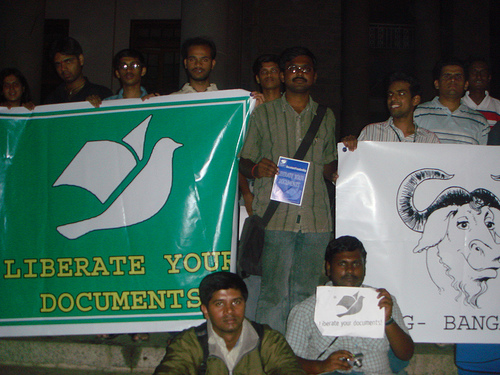
“I got a couple of docx documents and had trouble getting them to open, even with the plug-in for Office XP. Next thing I know, I get a notice from my registry auditor that I have 1300 new registry errors.”Over the last 10 years,
we've seen these very same
techniques, documented back in 1997,
used widely to spread viruses including
Melissa, Nimda, Sky, BugBear, and about
250,000 other viruses, worms,
and malware, not including spy-ware and
other "Microsoft Authorized"
invasions of our privacy.
I got a couple of docx documents and had trouble getting them to open,
even with the plug-in for Office XP. Next thing I know, I get a
notice from my registry auditor that I have 1300 new registry errors.
And suddenly, my PC is churning the disk-drive and the network
connection at 3:00 AM (I'm getting old and have to get up), and the
network shows that I'm uploading something at full speed, even though
my computer is supposedly sleeping.
It isn't a back-up program that I'm running.
I would encourage COLA readers and OSS advocates to explore this in
more detail.
get someone with Office 2007 to send you a docx file.
unzip it using pkzip or winzip or unzip.
look at the binary files.
replace one binary object with another.
zip up the document,
see if your office-2007 user can read the "enhanced" document.
For those of you with OLE programming skills, create an OLE object
that creates a file, and e-mails that file to you using smtp.
Send a document with this new ole object embedded (along with the
others) and see if you get an e-mail.
I haven't tried this, and I don't know if it will work. I'm not sure
how hard it would be to make it work. I just think it might be an
interesting project worth investigating, especially if you are
considering the migration of a few thousand users to Vista and Office
2007.
I'd love to see what the results turn out to be. After all, if it's
that easy to take control of a recipient's machine just by sending
them a "trusted" Word, Excel, or PowerPoint attachment, just think how
much chaos a really aggressive malicious hacker, with a goal of
obtaining marketable information about your business, could do.
Brazil is a P member of SC 34, so according to my reading of the clause, it has the right to appeal if any of the three above issues apply, and arguably they all do. According to South Africa, if the issue is ISO's reputation, or if there is a matter of principle involved, Brazil can appeal. Even point three could apply, in that Brazil raises matters such as incorrect tabulation of votes, which, if true, one would hope ISO wasn't aware of.
[...]
Why did they bother to go, one might ask? Why vote, if votes disappear from the record? By my reading, Brazil paints a picture of an orchestrated event, tilted away from criticism or a negative result and a refusal to give substantive consideration to issues delegates wanted to discuss, due to time constraints Brazil calls arbitrary, and worse.

From the Campaign for Document Freedom